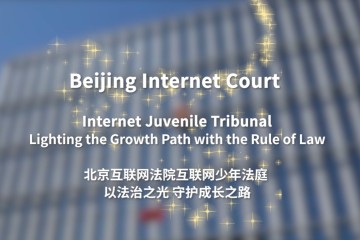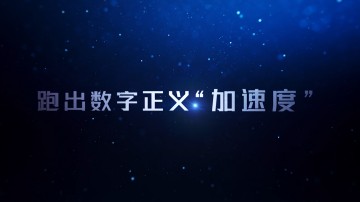Video copyright clash sparks compromise call
Legal experts are calling for the mutual development of the long and short video industries in tandem with copyright protection, suggesting courts play a bigger role in seeking to balance copyright protection and industry growth.
They raised the proposals after reports that a number of short-video producers had become anxious following recent complaints by filmmakers and frequent arguments between the two sides.
In early April, 15 film associations, five long-video platforms and 53 film companies posted a joint statement on combating copyright irregularities on short-video platforms after finding that internet users had edited and cut films or television series into several short videos, allowing them to be viewed in just a few minutes without notifying or paying the copyright owners.
About two weeks later, more than 500 Chinese actors and actresses joined the copyright protection campaign, calling on the government to fight such copyright irregularities on the country's rapidly growing number of short-video platforms.
In May, the copyright management division of the Publicity Department of the Communist Party of China Central Committee announced it would tighten scrutiny of those infringing copyrights of films and TV dramas on short-video platforms.
The massive copyright protection campaign and the prospect of intensified supervision troubled short-video makers. Sun Lei, a lawyer from Yuanhe Partners in Beijing and also a user of Bilibili, one of China's most popular short-video sharing platforms, said, "Some people working with me to create videos on the platform have expressed their concerns and fears about the campaign, telling me they have no idea what to do."
If films and TV series, major sources of many short videos, cannot be used due to copyright problems, passionate short-video industry practitioners may find themselves in the awkward situation of trying to make bricks without straw, Sun said.
He suggested the authorities, especially courts, list or specify situations in which secondary creations on short-video platforms can be identified as "proper use", "as the works can save much more time than longer ones, or they're more in tune with public taste in this fast-paced life", he added.
Short-video boom
A report released by the National Copyright Administration at a seminar last month said China had 873 million short-video users by the end of last year, and that netizens on average spent a quarter of their time online watching short videos.
Compared with the surging popularity of short-video sharing services such as Kuaishou, Douyin and Bilibili, the market share of long videos, including films and TV shows, was about 9.13 percent last year, down 2.4 percentage points compared with 2019, according to the report.
While encouraging long-video makers to transform, legal experts agreed during the seminar that cutting films or TV series into a few short videos, with a banner saying "you can watch a film in just a few minutes for free "should be identified as copyright infringement.
"Such quick-watching works without any additional content are not secondary creation," said Liu Wenjie, a law professor at Communication University of China.
Ongoing controversy
But whether short-video producers' use of some cuts to introduce or comment on a film or TV drama can be defined as proper use is still controversial.
In Liu's opinion, copyright infringement cannot be identified just because there is some film or TV content in a short video.
"If someone has to be authorized by or get permission from a copyright holder before commenting on his or her works, the diversity of online posts or articles will be restricted and film critics may disappear," he added.
Sun said it took a lot of work to prepare a 15-minute video with his teammates to popularize the sciences or some other field of knowledge.
"Writing a script of more than 3,000 words is what we should do first, and then we need to look for materials and edit the video with subtitles and voice it ourselves," he said, adding it is improper to ban such secondary creation just because it uses some segments of films or TV series.
After the copyright protection campaign was initiated, Zhao Zhanling, a lawyer with Beijing Yunjia Law Firm, said that whether a short-video maker is identified as a copyright infringer can depend on the proportion of content from films or TV series he or she uses.
"If film cuts or content take up, for example, two minutes or more of a poster's three-minute video without the poster contributing original ideas, that person should be taken as a copyright infringer," he said.
But Zhang Xuan, a judge from Beijing's Haidian District People's Court, disagreed. She said that in practice it is difficult to identify copyright infringement by proportion.
"If the edited proportion is very low in a short video but can almost present or interpret a more complete picture of a long-video work, such behavior, in my opinion, cannot be identified as appropriate use," Zhang said.
Mutual development
Seeing the complaints from film producers and the anxiety among short-video makers, Liu Yongyin, a lawyer at Beijing Zhonglun Law Firm who specializes in handling intellectual property rights cases, said mutual development should be highlighted as a goal of the two industries.
While calling for short-video platforms to tighten supervision on uploaded works and enhance their users' self-discipline and awareness of copyright protection, he added that the makers of films and TV series should also respect such a new business model in the internet era to allow short-video creators to maintain their enthusiasm.
"Materials for secondary creation in short videos should be obtained in legal ways," he said, adding that courts should disclose more situations that can be identified as "proper use" after concluding copyright-related cases.
Sun said some short-video operators buy the copyrights of some films and TV dramas as materials for their users to make short clips, but there are still many long-video makers and platforms that refuse to countenance such purchases, let alone negotiate on authorizing the copyrights.
"The nature of the campaign and the ongoing copyright-related arguments is a competition between the two industries in the market," Sun said, adding that courts should be braver in identifying the proper use of films and TV dramas to prevent long-video platforms from bullying the market.

 Judicial White Paper
Judicial White Paper
 Play
Play Play
Play Online Lawsuit Guide
Online Lawsuit Guide Beijing Internet Court Lawsuit Service WeChat Account
Beijing Internet Court Lawsuit Service WeChat Account  Beijing Internet Court WeChat Account
Beijing Internet Court WeChat Account